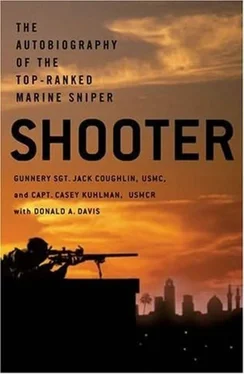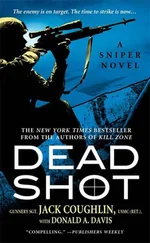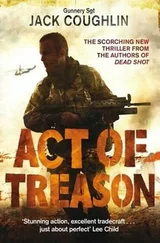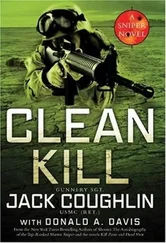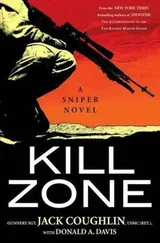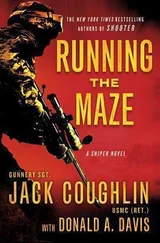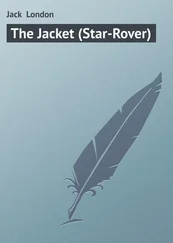We kicked so much butt that day that after a few hours of beeping and chirping MILES belts, the game was stopped and my sniper platoon was divided, with half of us being given to each force. That only made things worse, because now we were doing it to everybody instead of just one side.
The commanders grew agitated. If they couldn’t get rid of the pesky snipers (the ones who couldn’t survive in an urban environment), this war game would never get played, so the bigwigs finally called each other on the radio and swapped the grid coordinates of my various teams. Finally they knew exactly where we were, and they sent units out specifically to squelch us.
It’s bad enough when the enemy doesn’t want you around. It’s worse when your own guys don’t want you either, and we started feeling unloved again. As soon as I figured out that we had been given up, I radioed word for all of my boys, on both sides, to free-play-just go out and kill as many people as possible before they get you-and we took off like a bunch of cockroaches.
By the time they weeded us all out of the game, my small team had “killed” more than sixty men, including many of the important players, and had staggered both the attacking and defending forces. After I got beeped, I went over and sat on the porch of a small house to get out of the rain, figuring I could be just as dead dry as I could be wet. Casey and a whole bunch of other Marines were resurrected and sent back into the fight, and ProMet resumed.
I was filthy and exhausted but happy with the job turned in by my boys. I could not have asked for a much better demonstration of my arguments for unlocking snipers from fixed positions and setting them free to roam. Our run-and-gun tactics had altered the geometry of the battlefield by turning us into a totally unexpected force, and I could easily imagine that the trouble we caused would have been greatly magnified if we had been able to increase our range by using fast, high-performance vehicles.
Before I could delve too deeply into my recollections of the day, a high-ranking officer sloshed through the mud to find me. He was one of the foreign observers and wore the badges of a special operations unit that I knew well. He planted a big black boot on the porch, looked me in the eye, and said with a thick accent, “You’re good. Oh, you’re good.” Then he walked away, chuckling.
My boys had proven some things that day, and the overall tactics that Marines would use in taking a city had to be reconsidered. Snipers still had a place in war, and the ways to use them had increased. The experiences of ProMet in the neighborhoods of George AFB were important.
It didn’t make me too popular with most of the planners, but it did make me right, and I liked that better. We had proven that snipers had a valuable role in modern warfare, with possibilities that could not be ignored. We had brought an attack to its knees, and even when the enemy knew where we were, it was hard to snuff us out. Give us wheels and we would be only more deadly.
ProMet was in January 2001, and the world had not yet collided with the horror of mass terrorism, for 9/11 was still nine months away. We had no idea that the lessons learned on the tidy streets of an abandoned Air Force base would soon be put to use in other towns in another desert. The War Lab swamis had called it right.
Winds of War
Twenty-nine Palms, California, is a company town, and its business is the United States Marine Corps. It has more barbershops than convenience stores, and apartment leases run month to month instead of by the year because Marines are transferred at a moment’s notice. Fast-food joints stay open late, knowing that we may be in the field long past normal closing times, and the dry cleaners keep their doors open on Sunday nights so we can pick up pressed uniforms after a long weekend. Despite the name, it is an arid desert so devoid of majestic palms that we call it “the Stumps.”
I am stationed there as part of the 3rd Battalion of the 4th Marine Regiment, attached to the 7th Marine Regiment of the 1st Marine Division. The reasons for this numerical soup are complicated and confusing, even to those who understand them, and make little difference anyway. We are called “the Three-Four”-it’s written like a fraction, 3/4-and because of our aggressiveness, our nickname is “the Bull.”
Out here, in nine hundred square miles of emptiness, we have as much room to play as the mind can imagine, and roaring, thunder-clapping, live-fire exercises are common as we train to the breaking point. We fire our weapons in a totally tactical environment that we make as realistic as we dare: Real bullets are fired right over the shoulders of the troops, tanks attack with real cannon fire, and planes drop real bombs. Then we do it all over again because we never consider ourselves ready enough. There are no days without gunfire or Marines running in the sand at 29 Palms, although only a few miles away down Highway 62, the rich folks play golf and enjoy a champagne brunch in Palm Springs.
Other units are sent here for specialized training, but this is our home turf, and we know every inch of it. An area called “Range 400” is considered one of the scariest stretches of territory in the Corps for training, but that range is so familiar to us that it is no longer challenging, so we devise different, and more difficult, scenarios to practice. The result is a unit so razor sharp that we walk with a swagger and are always ready to be the opposing force in some war game. The Bull is the home team, the varsity.
But it didn’t feel like that on September 11, 2001, when terrorists drove two hijacked airliners into the Twin Towers in Manhattan, crashed another into the Pentagon, and sent still another spiraling down into the placid countryside of Pennsylvania. Thousands of American civilians were murdered that day, and there wasn’t a damned thing the Bull could do about it. Not yet.
Only the month before, in August, most of the battalion had packed up and departed for Okinawa. This small island in the Pacific had been one of the most contested battlegrounds of World War II. Now Japan owned the place again but allowed the United States to keep the 3rd Marine Division, our official parent unit, on the island to respond to area threats. The 4th Regiment headquarters was also out there, along with a rotation of its fighting units. It was the Bull’s turn to go sit on the Rock for a while and do some jungle training. Among those who made the trip was Lieutenant Casey Kuhlman, the platoon commander I had “shot” during ProMet. We still barely knew each other, because we were in different companies within a large organization, and while he went to Okinawa as the executive officer of a rifle company, I stayed in the Stumps.
Colonel Steve Hummer, the commanding officer of the 7th Marines, was what we call a warfighter, the highest accolade an enlisted man can bestow upon an officer, and he was always preparing for the fight he was sure was coming. Hummer didn’t know exactly who, when, or where-only that it was coming and that he would have his Marines ready.
He had become a fan of my idea for a Mobile Sniper Strike Team that could yank snipers out of the shackles of yesteryear, and his eyes would almost glow when we discussed turning such a team of highly trained killers loose on a battlefield. A sniper platoon with fast-attack vehicles would give him a valuable new asset that would combine reconnaissance with a lethal strike team. So while the rest of my battalion went to Okinawa, Hummer kept me in California as his regimental chief scout/sniper, gave me bankers’ hours, and told me to stop talking and bring my idea to life.
With the colonel behind the plan, pushing and cajoling and opening doors, things actually began coming together. I needed special weapons, and a fellow sniper at another base was maneuvering that paperwork for me. For vehicles, I wanted to leapfrog over the available Humvees in favor of quicker desert-rat dune buggies. Hummer said, “Do it.”
Читать дальше
